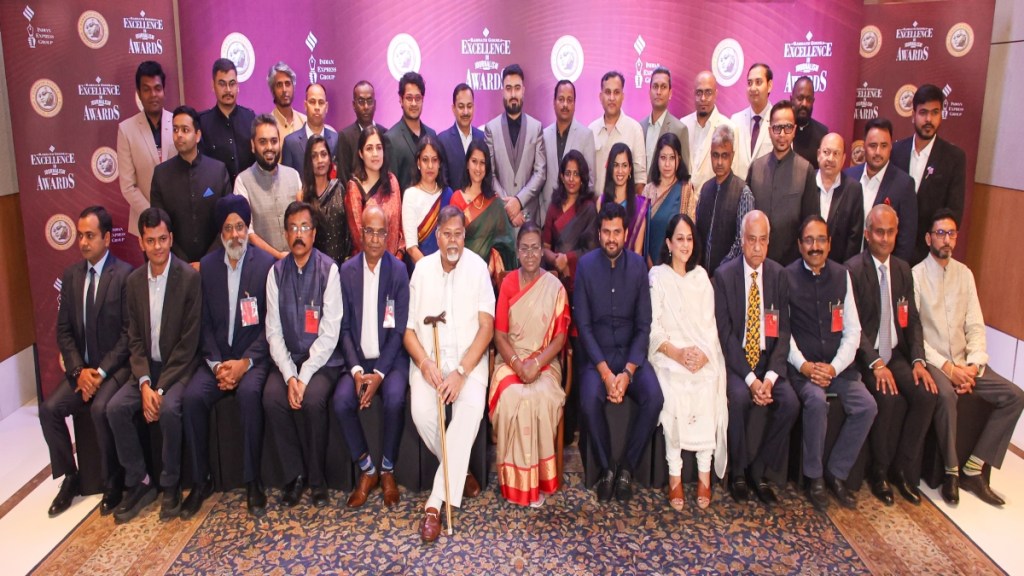The Ramnath Goenka Excellence in Journalism Awards 2023, India’s most prestigious journalism honour, recognise outstanding stories, including a ground report from Israel and the West Bank amid bombings, an investigation into Madhya Pradesh’s medical colleges, and the struggles of champion wrestlers for justice.
President Droupadi Murmu presented the awards at a ceremony in New Delhi on Wednesday. The awards celebrate 20 exceptional contributions across 13 categories, including investigative journalism, politics, sports, and regional languages, honouring journalists from print, digital, and broadcast media for their commitment to truth and ethical reporting.
Welcome to The Ramnath Goenka Excellence in Journalism Awards✨
— The Indian Express (@IndianExpress) March 19, 2025
Join us LIVE as we celebrate fearless journalism with the Hon’ble President of India, Smt. Droupadi Murmu, as our esteemed chief guest.
Watch here👇🏽https://t.co/Ljy1GZOyH0@rashtrapatibhvn @RNGAwards pic.twitter.com/qkJHSrW5Fq
Journalism of courage
President Murmu highlighted the contributions of Ramnath Goenka, founder of the Indian Express group, to journalism, particularly his unwavering defiance during the Emergency when his publication upheld editorial independence. She emphasized that Goenka’s approach to journalism reflected the principles of service, a belief also championed by Mahatma Gandhi, who saw journalism as a powerful tool to empower and inform the masses.
“Ramnath Goenka stood up for the freedom of press before Independence as well as after Independence. His newspaper refused to buckle during the Emergency. The blank editorial it published became a telling symbol of a free press as well as a sign of hope for the restoration of democratic rights,” said Murmu.
The President reiterated that a free and fair press is essential for a thriving democracy. She underlined that media is the ‘Fourth Estate’ and plays a critical role in ensuring that citizens remain well-informed. She urged news organisations to strengthen their commitment to fact-based reporting and to invest in research-backed journalism.
Murmu acknowledged the evolving landscape of media, emphasising the importance of investigative journalism and reporting from the ground. She pointed out the difficulties faced by traditional media due to changing business models and the rise of digital platforms. She advocated for a sustainable business model that keeps readers at the center while balancing profitability and journalistic responsibility.
Combating misinformation
President Murmu addressed the growing challenges of misinformation, deep fakes, and the misuse of artificial intelligence in media. While AI is transforming journalism by automating content creation, she emphasized that machines lack empathy, which remains the core strength of human journalists. She called for educational initiatives to help citizens develop critical thinking skills to differentiate between fact and biased reporting.
“On the issue of content creation, we hope that we will soon reach a stage when malicious content will be weeded out, and the so-called post-truth will go out of currency. Technological tools are also being applied to that end. We can hasten that process with pro-active campaigns to educate citizens about these pitfalls. In fact, the hazard of deep fakes and other misuses of artificial intelligence compel us to sensitise all citizens about this critical aspect of news. The young generation, in particular, should be educated to spot the bias and the agenda in any form of news report or analysis,” said the President.
The President applauded the award winners for their dedication to truth and their efforts in giving voice to marginalised communities. She also appreciated the inclusion of regional language journalism in the awards, as it promotes diverse narratives from across the country.
President Murmu concluded by congratulating the winners and expressing her confidence that Indian journalism will continue to uphold its values of integrity and fearless reporting. She reaffirmed the need for ethical journalism, which not only strengthens democracy but also ensures that journalism remains a force for good in society.

